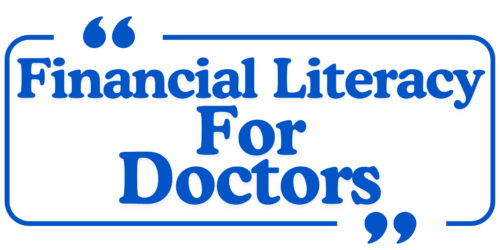Investment Education Curriculum for Doctors
Overview: This curriculum is designed to educate medical professionals about investing, equipping them with the knowledge and skills necessary to build and manage an investment portfolio. Given the unique financial situations many doctors face, understanding investment strategies and principles is crucial for long-term financial security and wealth building.
Module 1: Introduction to Investing
- Target Audience: All doctors, especially new graduates
- Duration: 1 hour
Objectives:
- Understand the fundamentals of investing and its importance in financial planning.
Topics Covered:
- Why invest? The impact of inflation on savings
- Different asset classes: Stocks, bonds, real estate, and alternatives
- Risk vs. return: Understanding the investment spectrum
- The importance of time in the investment process
Module 2: Setting Financial Goals
- Target Audience: All doctors
- Duration: 1.5 hours
Objectives:
- Learn how to set realistic financial goals to guide investment strategies.
Topics Covered:
- Short-term vs. long-term goals
- Identifying personal risk tolerance
- The role of liquidity in financial planning
- Aligning investments with personal and professional goals
Activities:
- Personal reflection exercise: Define individual financial goals.
- Group discussion on how personal goals influence investment strategies.
Module 3: Investment Strategies and Vehicles
- Target Audience: All doctors
- Duration: 2 hours
Objectives:
- Explore various investment strategies and vehicles suitable for doctors.
Topics Covered:
- Active vs. passive investing: Pros and cons
- Understanding mutual funds, ETFs, and index funds
- Real estate investing: Residential vs. commercial
- Tax-advantaged accounts: 401(k), IRA, HSA, and others
- Diversification and asset allocation strategies
Activities:
- Workshop on creating a diversified investment portfolio based on risk tolerance and financial goals.
- Group activity: Evaluate different investment vehicles and their potential returns.
Module 4: The Importance of Research and Due Diligence
- Target Audience: All doctors
- Duration: 1.5 hours
Objectives:
- Learn how to conduct research and perform due diligence before making investment decisions.
Topics Covered:
- Understanding financial statements and key metrics
- Evaluating investment opportunities: What to consider
- The role of market trends and economic indicators
- Tools and resources for effective research
Activities:
- Hands-on activity: Analyze a sample stock or fund and present findings.
- Group discussion on the importance of ongoing education and research in investing.
Module 5: Understanding Risk Management
- Target Audience: All doctors
- Duration: 1 hour
Objectives:
- Identify and manage risks associated with investments.
Topics Covered:
- Types of investment risks: Market risk, credit risk, and interest rate risk
- Risk management strategies: Diversification, hedging, and insurance
- The importance of maintaining an emergency fund
- When to adjust investment strategies based on life changes
Activities:
- Case studies on risk management scenarios and how to address them.
- Group discussion on personal experiences with investment risks and mitigation strategies.
Module 6: Building a Long-Term Investment Plan
- Target Audience: All doctors
- Duration: 1 hour
Objectives:
- Develop a personalized, long-term investment plan that aligns with individual goals.
Topics Covered:
- The importance of regular portfolio reviews and rebalancing
- Strategies for adapting investments as life circumstances change
- Retirement planning and the role of investments in achieving retirement goals
- Planning for major expenses (e.g., children’s education, buying a home)
Activities:
- Create a personalized investment plan that outlines investment strategies, goals, and review timelines.
- Group brainstorming session on common challenges faced in sticking to investment plans.
Conclusion and Certification
Upon completion of the curriculum, participants will receive a certificate of completion, recognizing their understanding of investment principles and strategies. This education will empower doctors to make informed decisions about their investments, ultimately leading to greater financial security and wealth accumulation.
This curriculum can be delivered through various formats, such as in-person workshops, online courses, or webinars, providing flexibility for busy medical professionals while enhancing their understanding of investing.
